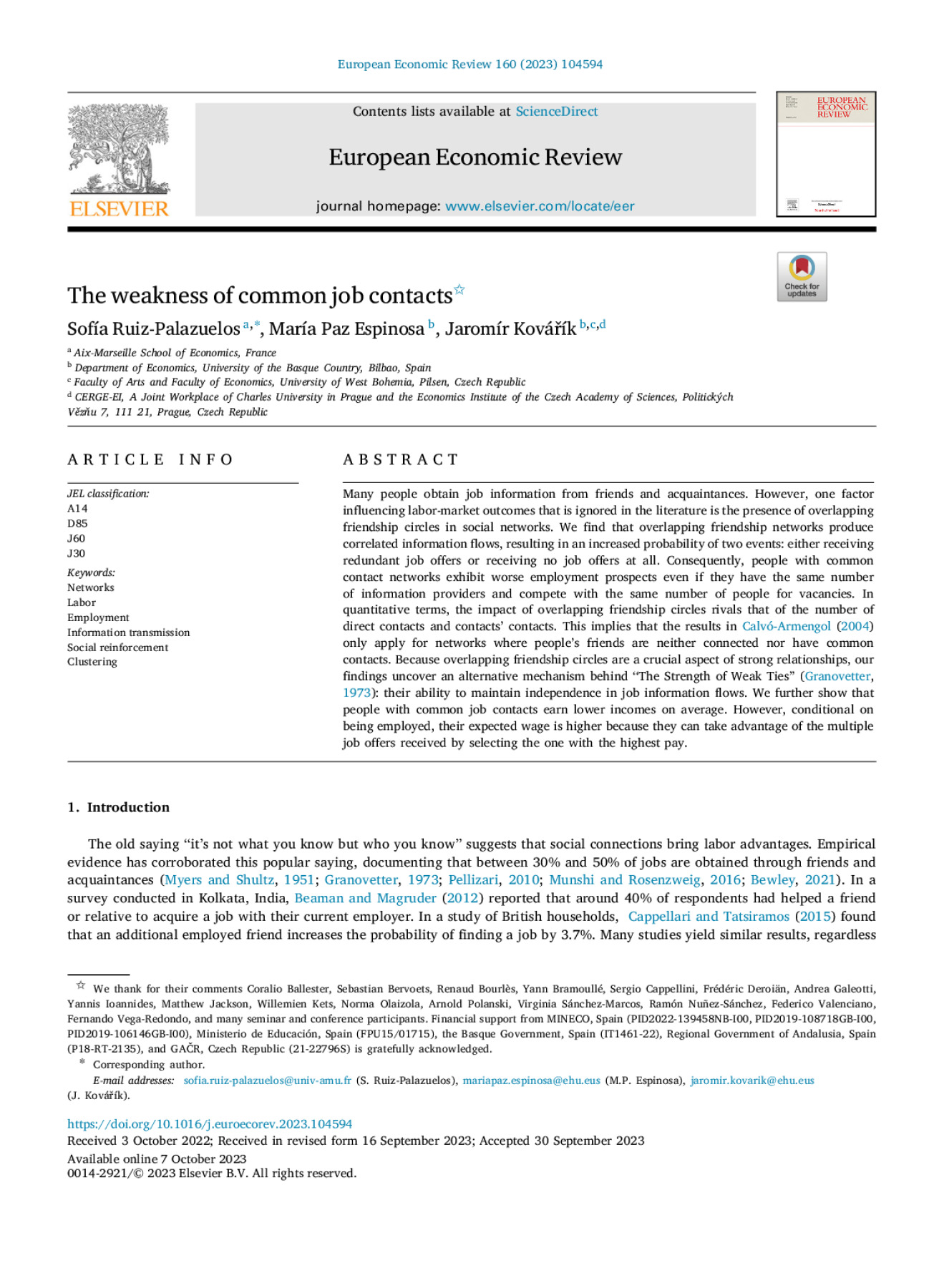2024 North American Summer Meeting: June, 2024
The Weakness of Common Job Contacts
Sofía Ruiz Palazuelos, María Paz Espinosa, Jaromir Kovarik
Many people obtain job information from friends and acquaintances. However, one factor
influencing labor-market outcomes that is ignored in the literature is the presence of overlapping
friendship circles in social networks. We find that overlapping friendship networks produce
correlated information flows, resulting in an increased probability of two events: either receiving
redundant job offers or receiving no job offers at all. Consequently, people with common
contact networks exhibit worse employment prospects even if they have the same number
of information providers and compete with the same number of people for vacancies. In
quantitative terms, the impact of overlapping friendship circles rivals that of the number of
direct contacts and contacts’ contacts. This implies that the results in Calvó-Armengol (2004)
only apply for networks where people’s friends are neither connected nor have common
contacts. Because overlapping friendship circles are a crucial aspect of strong relationships, our
findings uncover an alternative mechanism behind ‘‘The Strength of Weak Ties’’ (Granovetter,
1973): their ability to maintain independence in job information flows. We further show that
people with common job contacts earn lower incomes on average. However, conditional on
being employed, their expected wage is higher because they can take advantage of the multiple
job offers received by selecting the one with the highest pay.
Preview

















